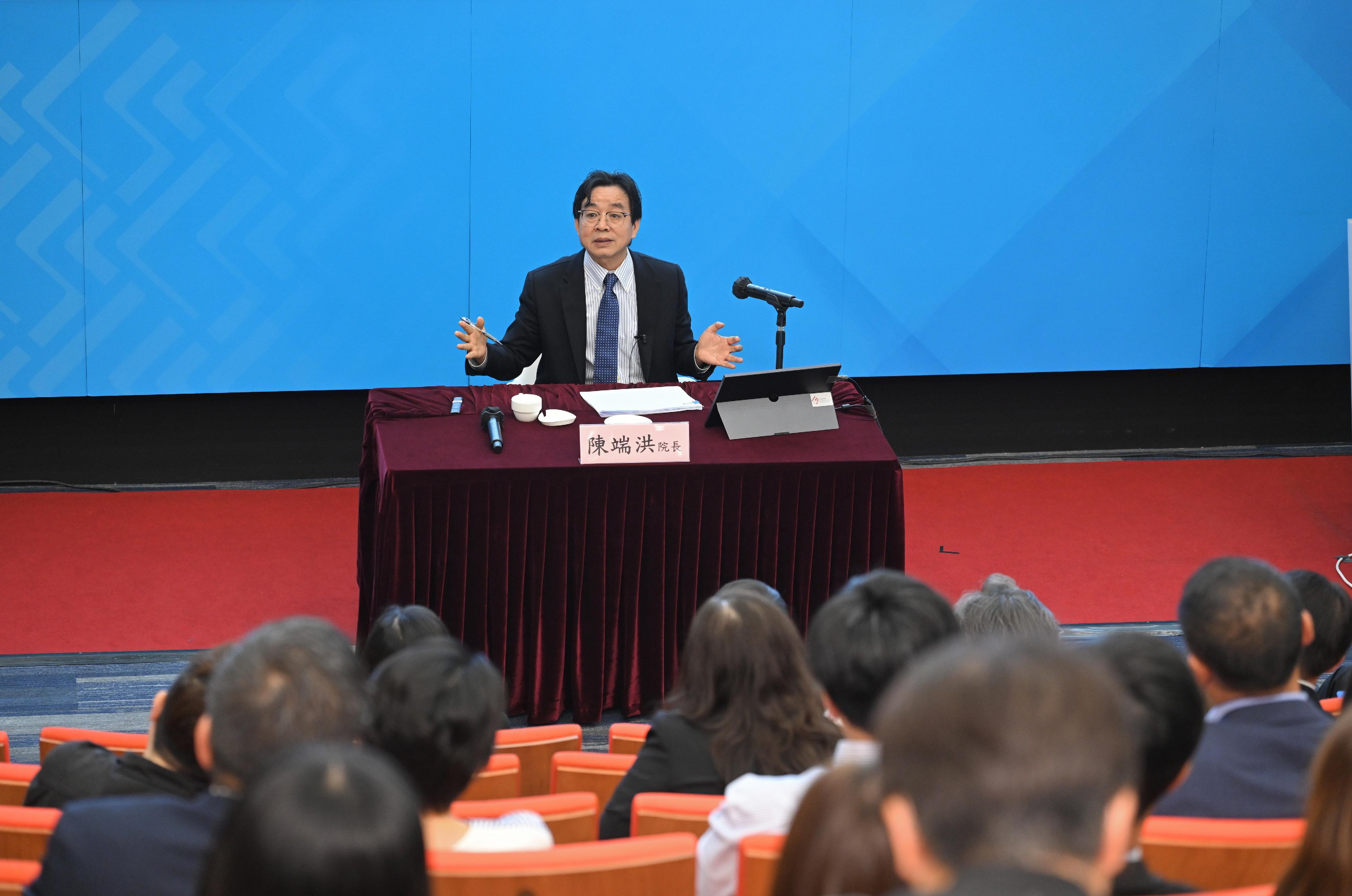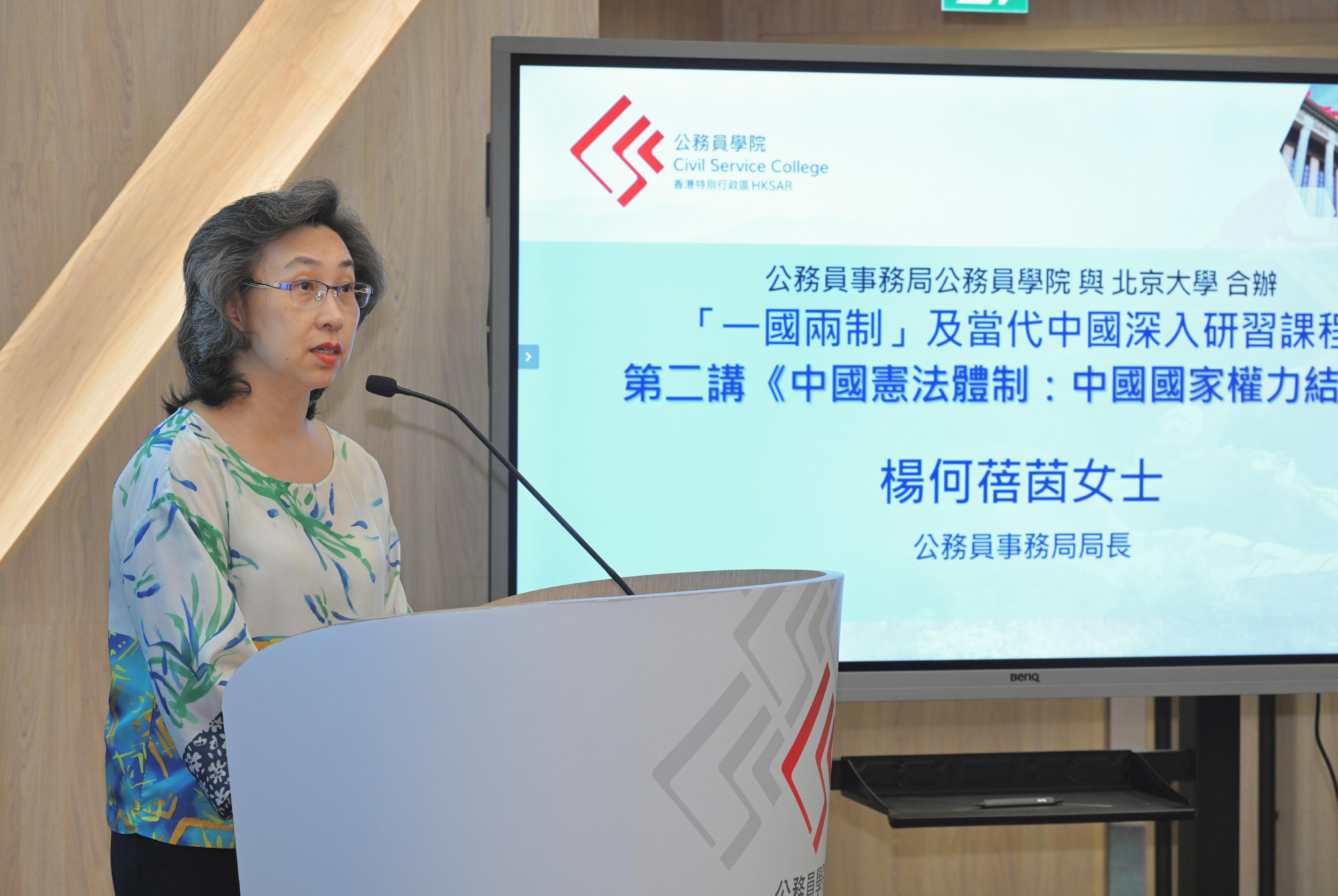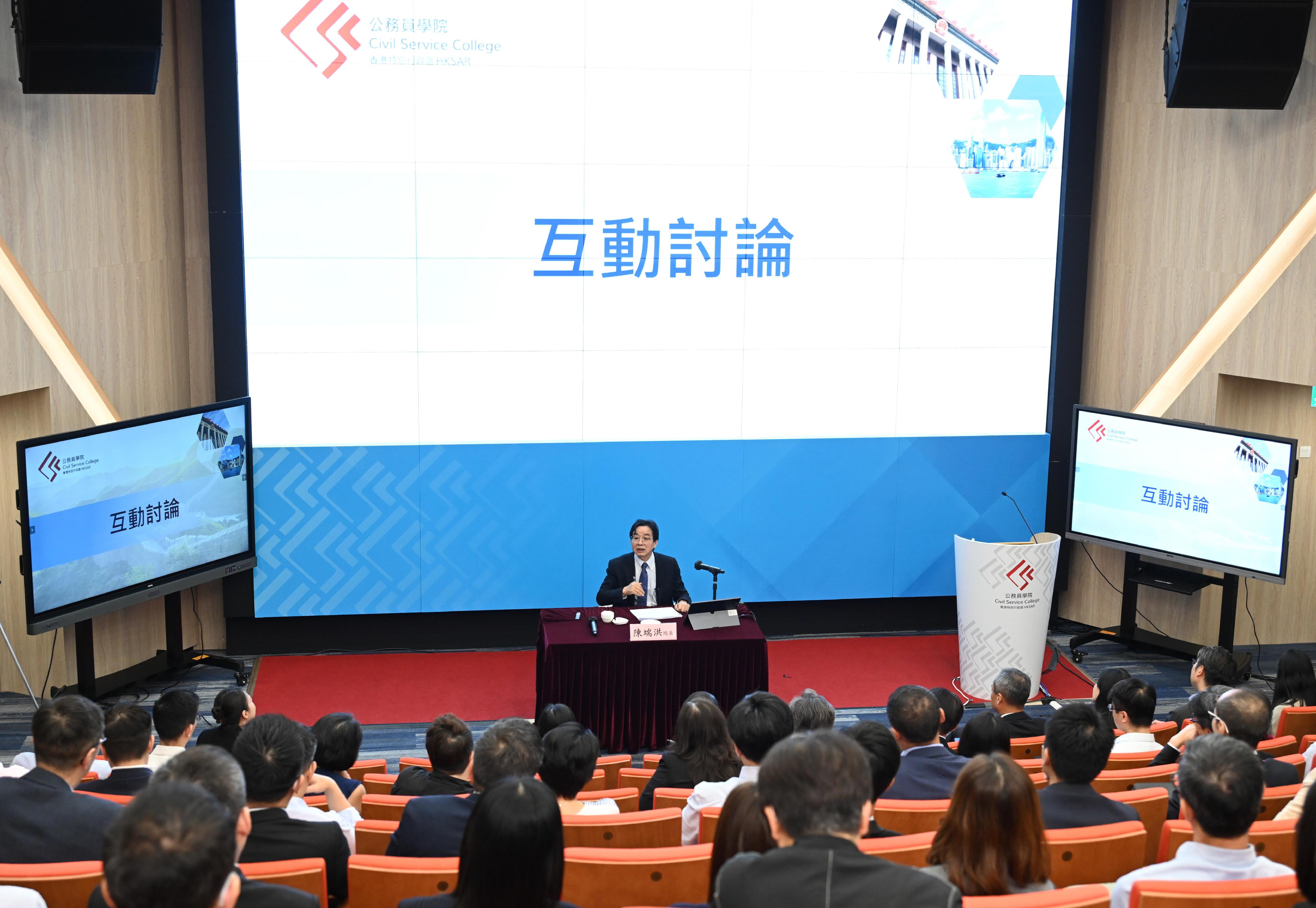Transcript of remarks by SEE at media session (with video)
The Secretary for Environment and Ecology, Mr Tse Chin-wan, met with the media on the discharge plan of the Fukushima nuclear power station of Japan at the Central Government Offices this afternoon (August 22). Following is the transcript of remarks by Mr Tse:
Reporter: Mr Tse, how long will the ban last? And under what condition will the Government remove the ban? And what will the Government do to help the affected restaurants?
Secretary for Environment and Ecology: In order to help the restaurants, I think the best thing to do is to assure the people of Hong Kong that all food allowed to be imported to Hong Kong is safe. That’s why we have a plan to prohibit the food from the Japanese prefectures which we believe have some risks. And we will also check all the food imported from Japan to ensure that their radioactive level meets all the standards. Therefore, I believe that with all those measures in place, we can assure the people of Hong Kong that all food sold in the Hong Kong market is safe, including those allowed from Japan. I think that is the best way to maintain the business of Japanese restaurants in Hong Kong.
As to the question about how long the prohibition will last, it actually depends on the data and information we can collect, as well as those provided by the Japanese Government after the discharge. It includes, of course, the radioactive levels and also the monitoring of the management system of the Japanese Government on how to ensure the system will operate smoothly and effectively. I think that is the most important point. At this point of time, we do not have a timetable of how long the prohibition will last.
Reporter: How will the Government help the Japanese restaurants in the city, which are currently struggling along with the whole catering industry in recovery if the seafood ban hurts the businesses? You have mentioned last month that the authority has no special subsidy for them at this stage. And what measures will the Government take in reviewing the whole disposal situation? And in what circumstances will the authority reconsider importing seafood from Japan? Thank you.
Secretary for Environment and Ecology: Regarding the restaurants and the food import business of Hong Kong, we have been communicating with them for several months already, to keep them informed of the development so that they can get prepared for, say for example, the different sources of their food supply. And as I have mentioned, the best way to help the restaurants is to ensure all the food sold in Hong Kong is safe, so that people in Hong Kong will have confidence in sponsoring those restaurants in Hong Kong. That is the way we are doing. And of course, we will keep communicating with the restaurant trade to see whether we can help them in other ways, enhance our communication, etc. I believe the best way is to ensure food safety and also to retain the confidence of people in Hong Kong in Japanese food. I think that is the best way to help the trade.
Reporter: What measures will the Government take to monitor the wastewater disposal situation?
Secretary for Environment and Ecology: The Japanese Government is doing that, I believe. That is why we have asked them for more information on how they are going to monitor it. In Hong Kong, we will monitor the radioactive level in our own waters, as well as the local fishery products, to assure all the people in Hong Kong that the Hong Kong waters as well as our fishery products remain safe. We will do that daily and we will also publish information daily to let everybody know.
Reporter: The Japanese Consulate has expressed some unhappiness regarding the import restrictions back in July. So now the ban is going to come into place, how will Hong Kong navigate the bilateral situation?
Secretary for Environment and Ecology: As I have said, we remain our objection to the discharge plan. That’s why I am here. And also I will trigger our measures planned to protect the food safety of Hong Kong, as well as the Hong Kong people’s health. As for the future, we will continue to communicate and liaise with the Japanese Government to monitor the discharge plan and its effectiveness, etc. We will also review the adequacy of our food control plan from time to time.
read more




